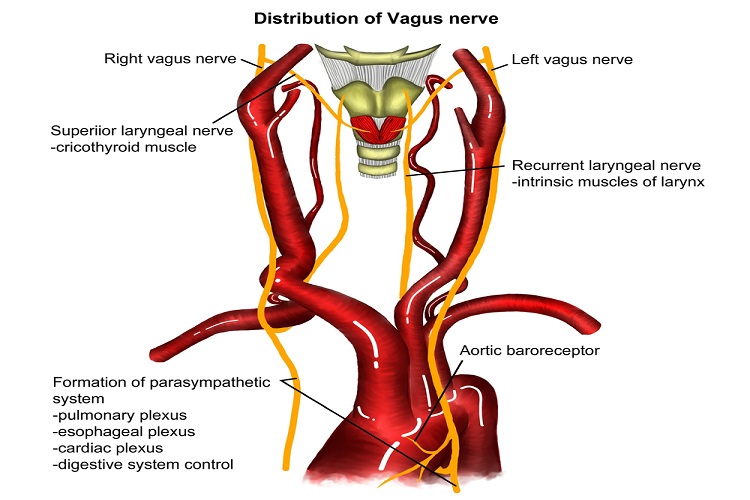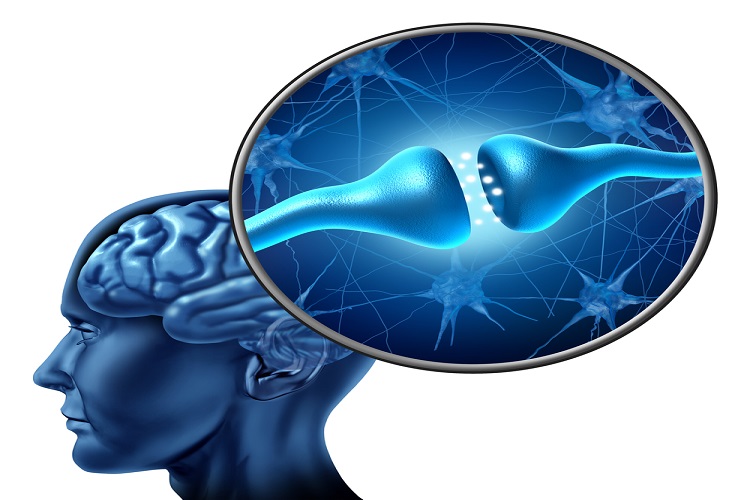How To Improve Your Memory By Stimulating Your Vagus Nerve
Why is it that while you might have difficulties remembering where you put your keys, you can recall the best ice cream you’ve ever had? Why food is so strongly associated with memory is now known, thanks to a recent study. Acting like a GPS between your gut and your brain, keeping your vagus nerve in excellent shape is important. You may have inflammation, a weakened immune system, anxiety, and mood changes as a result of an out-of-balance vagus nerve.

The Vagus Nerve: What Is It?
The vagus nerve is the longest nerve in your body; it runs from your brain all the way to your digestive system. It transmits biochemical messages in both directions, acting as a superhighway. It does this by communicating to your brain when your stomach is full.

The Vagus Nerve’s Impact On Memory
You can recall what you ate thanks to the vagus nerve network, according to research from the University of Southern California. According to co-author Scott Kanoski, assistant professor of biological sciences at USC Dornsife, “When animals find and eat a meal, for instance, the vagus nerve is activated, and this GPS is engaged.”
Rats’ gut-brain vagus nerve pathway was studied by researchers, and they discovered that when the connection was severed, the rodents lost key information about their surroundings. Lead author Andrea Suarez, a Ph.D. student in biological sciences at USC Dornsife, notes that when the link between the gut and the brain was shut off, “These memory deficits were coupled with harmful neurobiological outcomes in the hippocampus.”
The researchers state that further investigation is required since their results raise the possibility that bariatric weight reduction or other procedures impact memory by obstructing gut-to-brain transmission. The study makes it abundantly evident that the vagus nerve is essential for several important bodily processes, including memory.

How To Support Your Vagus Nerve
Here are some methods to maintain a healthy vagus nerve:
– Try deep breathing.
It is generally known that the vagus nerve, which regulates breathing, also affects heart rate. Your heart rate can be kept under control, and your blood pressure can be lowered with yoga breathing and guided breathing techniques that train the vagus nerve to function properly.
Try this box breathing method to get your vagus nerve to release acetylcholine, which will calm you down if you are panicking.
- Take a deep breath and count to four.
- Hold for four counts.
- As you exhale, count to four.
- Count to four before proceeding.
- Repeat until you feel in control again.
– Expose yourself to cooler temperatures.
As your body becomes accustomed to the cold, your vagus nerve is stimulated, calming your nervous system. According to studies, exposure to cold on a regular basis—for example, taking an ice-cold shower—decreases stress signals. This is an excellent justification to go for a walk outside on a chilly day if you reside in a cold winter climate. Alternatively, you might try cryotherapy in a chilly cryo chamber, which is a huge tank filled with air that has been chilled by nitrogen.

Maintain A Healthy Gut & Sing A Tune
Because your brain and gut are connected by the vagus nerve, it’s critical that you take steps to preserve a healthy gut microbiome. Remember that biochemical signals travel in both directions along the vagus nerve, which is a two-way street. So use probiotics and fermented foods to assist your digestive system. Additionally, you may get a thorough microbiome test that assesses your gut health. If your stomach is out of whack, you can then work with a doctor to get it back in balance.
– Sing to comfort yourself.
Stephen Porges, MD, discusses his idea, the Polyvagal Theory, which contends that the vagus nerve and your body’s fight-or-flight reaction are intricately intertwined. Porges claims that in order to resist the flight-or-fight response, you should make every effort to keep the vagus nerve in its current state. “Singing or playing wind instruments forces you to exhale slowly,” according to Porges, this has a similar relaxing impact on the vagus nerve to yoga breathing.
